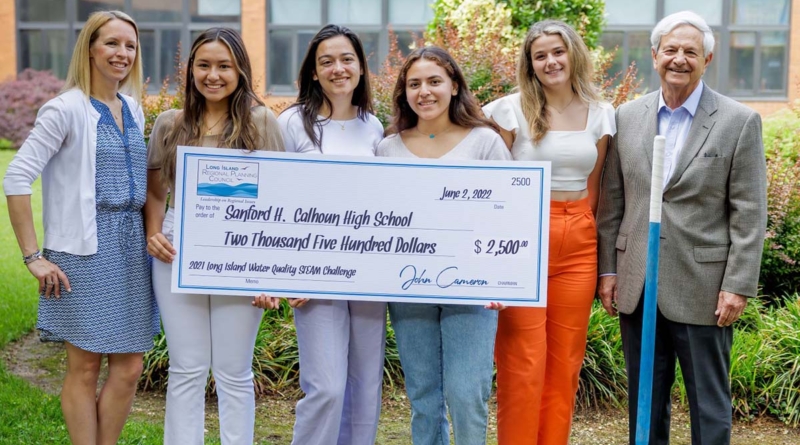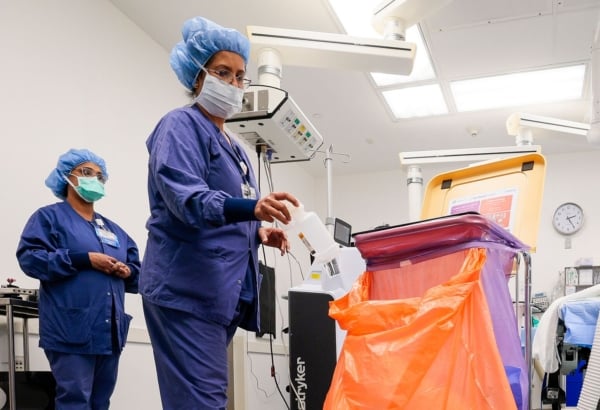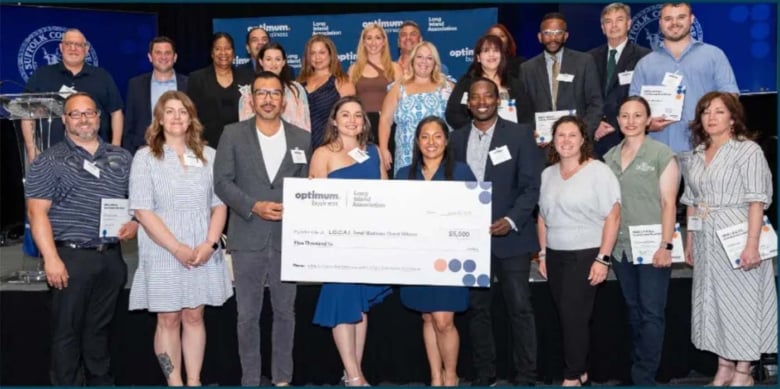Schools win grants for water quality projects
Three Long Island schools received financial grants from the Long Island Regional Planning Council as part of the 2021 Long Island Water Quality STEAM Challenge.
The competition, developed in partnership with the state Department of Environmental Conservation, encourages students to design and develop projects to reduce rain runoff and nitrogen pollution on school grounds.
Sanford H. Calhoun High School, New Hyde Park Memorial High School and Commack High School were each awarded $2,500 grants as part of the 2021 Challenge, according to a LIRPC statement.
The Long Island Water Quality Challenge was first offered in 2019 to all schools in Nassau and Suffolk counties with an invitation to develop and design projects for their school grounds which will either reduce the use of fertilizers/pesticides and water consumption, or devise methods to collect and treat water runoff from the school property.
“The health and sustainability of our ground and surface waters depends upon all of us taking small but significant steps to prevent nitrogen and other pollutants from contaminating the water,” John Cameron, LIRPC chairman, said in the statement. “It is essential for students today to recognize the challenges our region faces in protecting the quality of our water systems and the schools participating in the 2021 Water Quality STEAM Challenge have established an active and ongoing outdoor classroom for all students, present and future, to learn and reflect on this important issue.”
At Calhoun High School, students designed a rain garden which features native plants to help filter out pollutants or excess nutrients from stormwater runoff before it enters the surface waterways or recharges into the groundwater supply. The garden will provide a natural habitat for birds and butterflies and will serve as an ongoing classroom for students in future years.
At Commack High School, a rain garden and rain collection barrels will encircle the school’s existing greenhouse in the main courtyard to serve as a natural habitat for pollinators and to filter rainwater runoff. The garden will provide ongoing educational opportunities for Biology and Environmental studies to incorporate the garden into curriculum.
At New Hyde Park Memorial, multiple rain gardens will be installed on campus and students are developing an extensive outreach and education plan to teach their peers and the larger community about nitrogen pollution and prevention.
“New York State is taking numerous steps to address the nitrogen pollution that has degraded the waters of Long Island and collaborating with key partners is instrumental to our success,” New York State DEC Commissioner Basil Seggos said in the statement. “The Long Island Regional Planning Council, in partnership with DEC, conducted this STEAM Challenge to raise local awareness and encourage young New Yorkers to become involved in the solution. The nitrogen problem is multifaceted and impacts all Long Islanders, but through hard work at the local, county, state and federal levels, our water quality will continue to improve both now and for future generations.”




